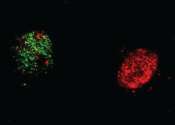Neuroscientists reverse memories' emotional associations
Most memories have some kind of emotion associated with them: Recalling the week you just spent at the beach probably makes you feel happy, while reflecting on being bullied provokes more negative feelings.
Aug 27, 2014
2
1









